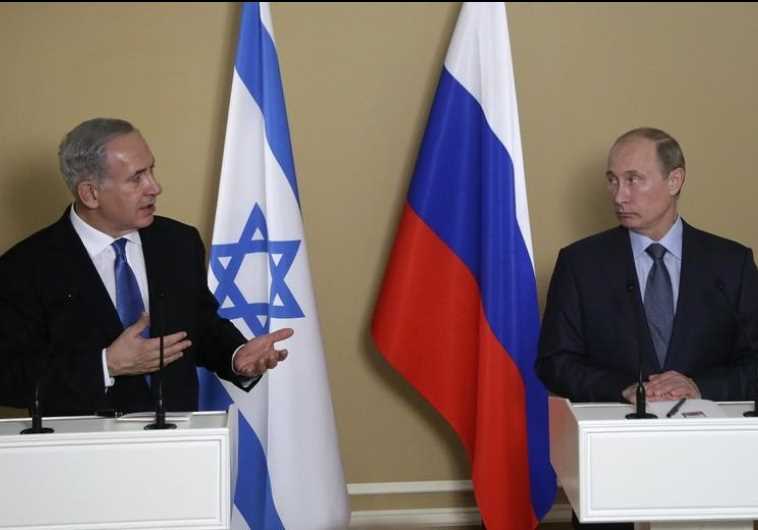Analysis: PM-Putin tango doesn’t replace US-Israel romance
The Kremlin put out a two-sentence statement on Wednesday saying that Netanyahu called Putin to discuss the diplomatic process and regional issues.
 Prime Minister Benjamin Netanyahu and Russian President Vladimir Putin
Prime Minister Benjamin Netanyahu and Russian President Vladimir Putin